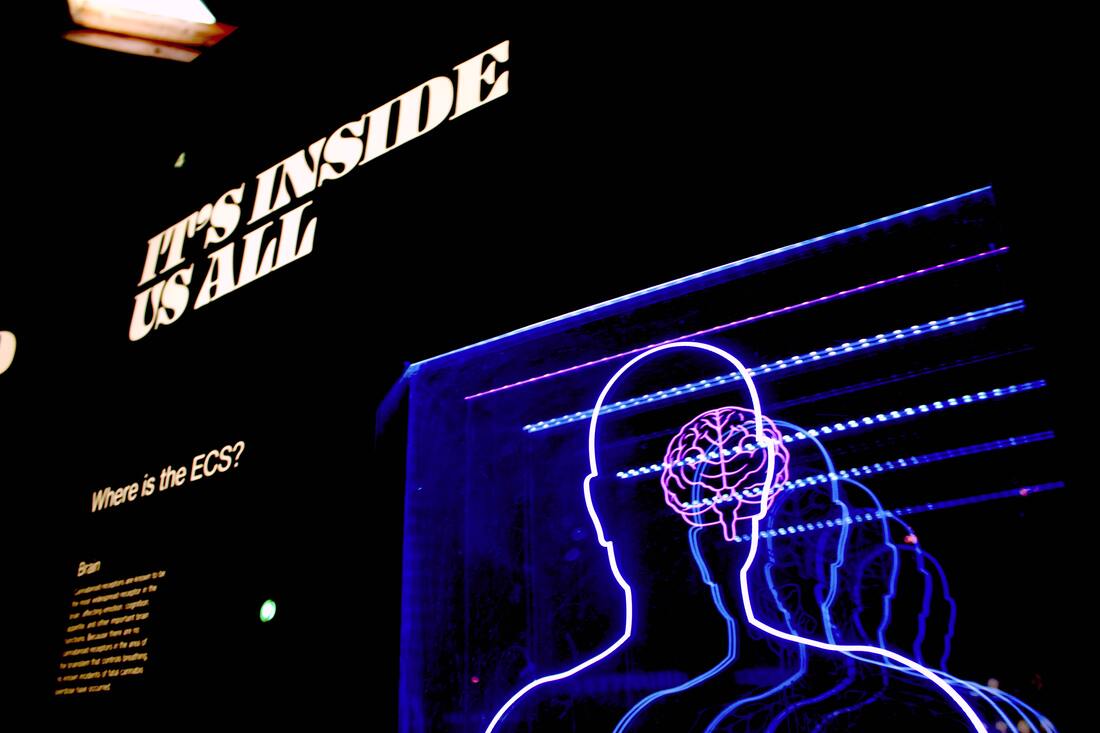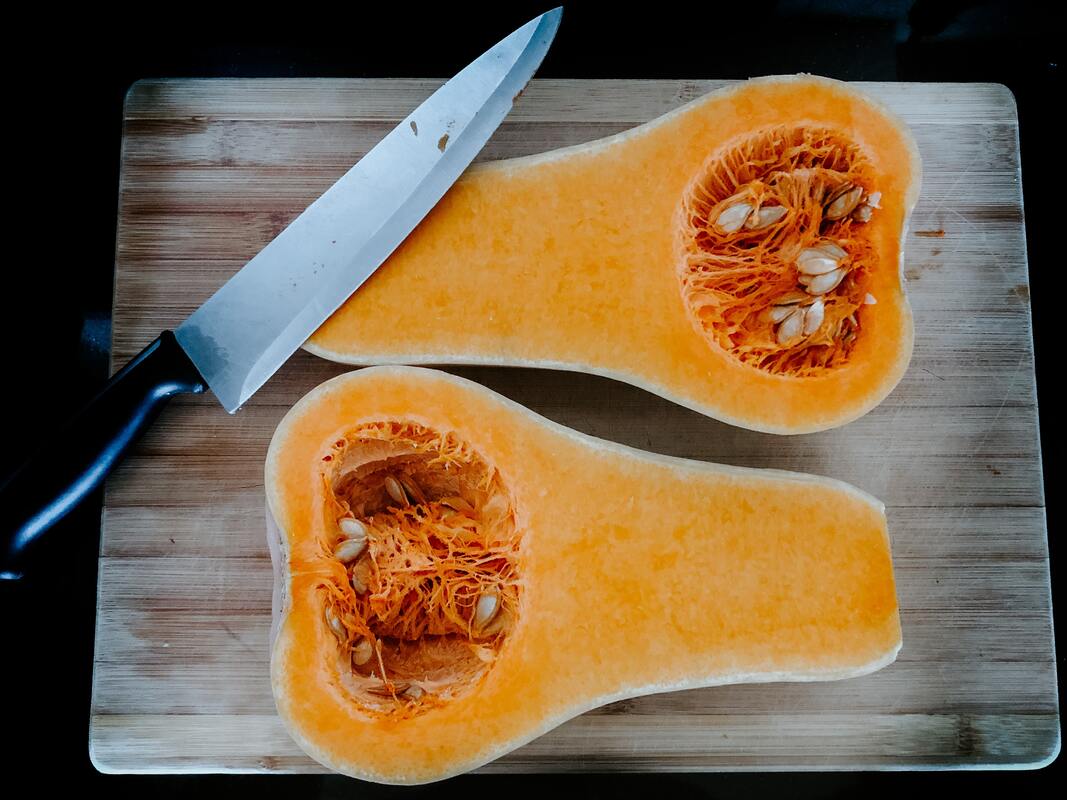And even better if at stage 5 of ripeness ... Photo by Charlotte Harrison on Unsplash Who would have thought that bananas promote our gut health, helping grow beneficial bacteria that ultimately strengthens our bones and delays neural degeneration in our brain?
It all starts with inulin, which is in bananas and which begins digestion only when it reaches our gut. Protects your brain and reduces your wrinklesWe know about the immune-support properties of vitamin D, currently the subject of many studies examining its ability to help our immune system resist Covid19.
We know about the antioxidant effects of vitamin C, and vitamin E, both of which limit the impact of free radicals and reduce chronic inflammation. (Antioxidants neutralise free radicals which are molecules that cause cellular damage when their levels become too high. Damage caused by free radicals is associated with numerous chronic conditions, including cancer, heart disease, and diabetes.) Asparagus ranks as an excellent source of both vitamin E and vitamin C. It is also a good source of a vitamin which you have probably never heard of before - vitamin P. In fact, vitamin C and vitamin E work synergistically to enhance the antioxidant effects of vitamin P. And boost your brain health Photo by Alex Motoc on Unsplash The choices you make at the grocery store can have an impact on the inflammation in your body. Scientists are still unravelling how food affects our inflammatory processes, but they know a few things.
In simple terms, sugary high-processed foods help release inflammatory messengers that can raise the risk of chronic inflammation. Other foods like fruits and veggies help your body fight against oxidative stress, which can trigger inflammation. Add walnuts to your shopping list - they fight inflammation and have other desirable side-effects such as helping us sleep better. And add some fenugreek seeds ... Photo by Gábor Szűts on Unsplash Is coffee good for you? It could be, in moderation.
Coffee has had a hot-and-cold reputation when it comes to health benefits. Not long ago, I was learning about the dangers of coffee: how it could raise your blood pressure, make your heart race, impair sleep, and maybe even cause bladder and pancreatic cancer. Now, it seems that drinking two to five daily cups of coffee may protect against heart disease, diabetes, and some cancers. But too much can cause problems like anxiety, nervousness, and insomnia. And if you like Japanese food ... Nato mazesoba | Photo by 8-Low Ural on Unsplash Our body needs vitamin K to produce prothrombin, a protein and clotting factor that is important in blood clotting and bone metabolism, and for regulating blood calcium levels. That is how we usually pigeonhole vitamin K.
However, vitamin K's health benefits have been recently shown [2020] to extend beyond blood and bone health and to benefit chronic low-grade inflammatory diseases such as cardiovascular disease, osteoarthritis, dementia, cognitive impairment, mobility disability, and frailty. There is also interesting, though not definitive, evidence of a direct correlation between vitamin K levels and cognitive performance. Four human studies reported an association of low vitamin K intake or low blood concentrations of vitamin K with cognitive impairment or Alzheimer's Disease. Not to mention the earthing benefits of bare feet Photo by Angelo Pantazis on Unsplash We take our feet for granted until they're injured. I persisted in running too many extra kilometres in my favourite running shoes until my feet told me to grade-up to new shoes.
As well as bringing out my new shoes, I decided to walk barefooted every day as a way of reconditioning my feet. That turned out to be a fortuitous decision, as I have now found out. You might like to give it a try. When I decided to walk barefooted, I had no specific theory in mind. I just figured that having the bones, tendons and muscles of my feet moving across a natural surface - road, trail, and the beach in my case - would activate neuromuscular pathways that shoes don't. Choose something you enjoy and begin gradually Photo by Mark Daynes on Unsplash Working out is known to improve the moods of people with depression, although why it works is still somewhat a mystery.
What is not a mystery is research which reveals that exercise intensity is not associated with the level of mood improvement. For example, in this study, all participants experienced about the same level of reduced depression after hard, moderate and light aerobic exercise. Building regular exercise into your day will improve your day, and you can start as small as you like. Here's how.  Photo by Bret Kavanaugh on Unsplash Plus, to reduce risk of early death forget your weight and start measuring your waist, says global study of 2.5 million people[Copy of my weekly newsletter] Surprisingly, intermittent fasting has been found to improve our brain health and functioning - see #1. Forget the scales, measure your waist - check item #2. The pandemic has more people exercising - are you one of them? - item #3. The reverse lunge with front-kick is one of my fav movements, for all purposes - item #4. #staysafe #keepmoving #stayhealthy Here are my 4 Most Valuable pieces of content from around the web, to help you live longer better:
⭑ Your brain will stay brighter for longer if fasting is part of your life ⭑ Even if your BMI and weight is good your belly fat might kill you earlier ⭑ The ways we've reacted positively to the pandemic ⭑ Kicking your way to better balance and less hip pain Five ways to kick-start fasting to improve your cognitive fitness Photo by Viviana Rishe on Unsplash It's daunting to contemplate how to get started with intermittent fasting. It has become synonymous with keto and faddish diets and has elements of a cult - which turns people off. That's unfortunate because intermittent fasting can keep our brain functioning better for longer.
Here's how to get started, without having to "go keto" or remove yourself from family dinners. The reluctance to make fasting part of our lifestyle is not helped by the fact that until this year (2020), intermittent fasting was yet to be assessed in a rigorous clinical trial. The publication of a small "rigorous clinical trial" - just 58 subjects - reported "weight loss and improved cardiometabolic measures". Intermittent fasting (IF) diets fall generally into two categories: daily time-restricted feeding, which narrows eating times to 6-8 hours per day, and so-called 5:2 intermittent fasting, in which people limit themselves to one moderate-sized meal two days each week. Dr Mattson's two findings on how to live longer better Photo by Aleksandar Popovski on Unsplash After a lifetime studying the how aging and the brain interact, Dr Mark P Mattson recently retired from the National Institute on Aging. Dr Mattson is a renown expert in understanding neurobiological responses to physical exercise and dietary restriction and their relationship to ageing and age-related disease.
His two seminal findings can help us all live longer better. As we age, our brain inevitably loses its edge. But there is detailed research which shows two specific ways in which we can slow the rate of brain aging. Both are freely available and require no subscriptions, payment plans, nor coaches. |
ChoicesSince I was diagnosed at 50 with Type 2 diabetes I've been learning how to do bone-building fitness training which lowers my age. You can too. It's your choice. Walter Categories
All
Archives
May 2023
|

 RSS Feed
RSS Feed



